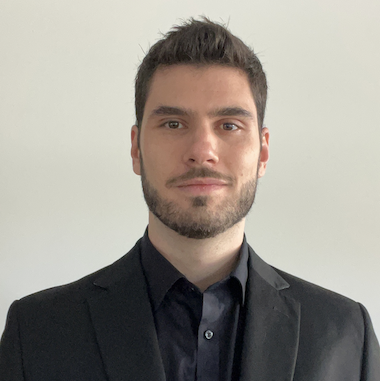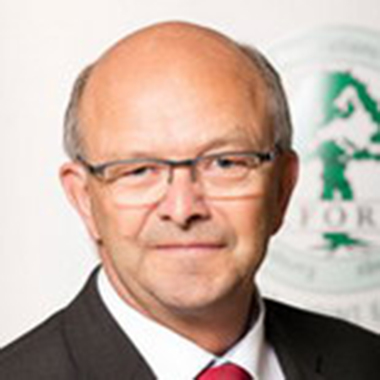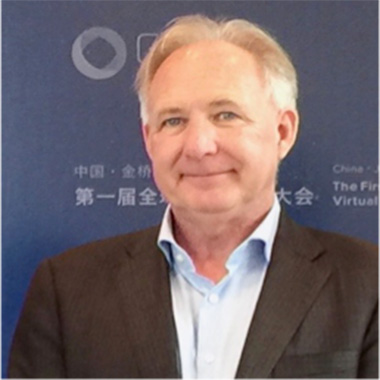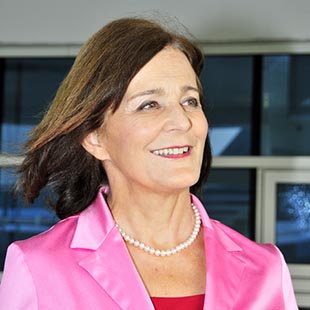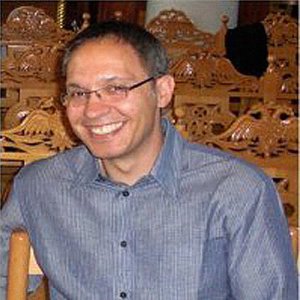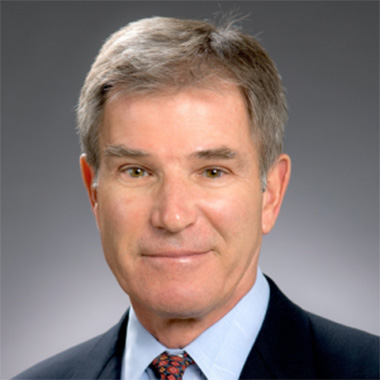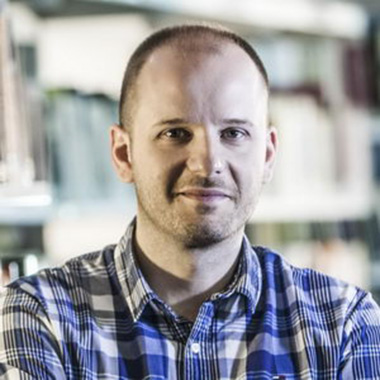.
Our Mission
“Accelerate medical training through spatial computing and spatial intelligence i.e. Computational Medical XR (CMXR)”
At ORamaVR, we aim to reduce global healthcare personnel shortages and medical errors with an AI-powered, XR-based authoring, training & assessment platform.
.
By Dr. George Papagiannakis, Sept 1st, 2024
I’m 25 years into researching and developing impactful immersive technologies and algorithms, previously with the University of Geneva, then with the faculty of computer science of University of Crete and ICS-FORTH, bringing in more than 8M funding, leading more than 25 R&D projects and 120 scientific publications in the field. Together with my co-founders Prof. Tsiridis, Prof. Trahanias, management, and development team, our ambition is to build ORamaVR with a 30-year view, spending our time and resources on maximizing our utility impact to humanity.
The Company
I believe that advancing the future of healthcare is the moral priority of our time. The most meaningful impact we can achieve stems from dedicating our resources to developing transformative technologies. In the coming years, we will witness significant advancements in Extended Reality (XR) and Artificial Intelligence (AI), and by contributing in the early stages, we can set the foundation for a healthier future for humanity.
Thus, the goal of our company: to develop comprehensive medical XR technologies and solutions that revolutionize healthcare, making a lasting positive impact on patient outcomes and creating a more efficient, accessible, and compassionate healthcare system for future generations. These innovations will eliminate barriers to quality care and training, ultimately enabling healthcare professionals to provide better, more informed care.
Our journey will be a long one—requiring a dedicated team driven by our mission, as well as significant investments, and continuous innovation to achieve a widespread impact. While we will face substantial challenges and risks, we aim to positively transform healthcare globally and to build one of the most impactful companies in the medical & technology industry.
The Present
Today, we face a critical challenge in global healthcare: nearly 5 billion people lack access to essential surgical and anesthesia care and only in Europe we witness 160K fatalities due to medical errors each year. The current medical training system has remained largely unchanged for over 150 years, leading to severe shortages in healthcare personnel and an alarming rate of medical errors. These issues are exacerbated by the outdated and inefficient methods used to train and assess medical professionals. In this context, the urgent need for innovative solutions that can enhance training, reduce errors, and improve patient outcomes is more apparent than ever.

The Possibility
We are at the dawn of a transformative era in medical education, where Extended Reality (XR) and Artificial Intelligence (AI) i.e. spatial computing and spatial intelligence, can revolutionize how healthcare professionals are trained and assessed. By leveraging these cutting-edge technologies, we can dramatically reduce the time, cost, and effort required to create high-fidelity medical simulations. This shift will not only make training more accessible but also significantly improve the skills and confidence of medical professionals worldwide. As we continue to develop and refine these tools, we see the potential to address the critical gaps in global healthcare, ultimately leading to safer, more efficient, and more equitable care for all.
We see three major business opportunities in the long term:
-
-
Revolutionizing Computational Medical Training: By integrating AI-driven XR simulations into medical education, we can create a new standard for training that is faster, more effective, more affordable and widely accessible.
-
Enhancing Patient Safety: Through continuous assessment and improvement of medical skills using our technology, we aim to significantly reduce medical errors and improve patient outcomes.
-
Driving Global Healthcare Impact: By democratizing access to advanced training tools, we can empower healthcare providers in underserved regions, leading to a substantial improvement in global health equity.
-
The Healthcare metaverse and next verticals of the computational medical XR after training are major new verticals for us to expand after becoming number one in training:
-
-
Planning
-
Navigation
-
Rehabilitation & Therapy
-
The Solution
Our approach centers on the MAGES-SUITE platform, an AI-powered, low/no-code software that enables rapid creation and deployment of high-fidelity medical XR simulations. Unlike traditional methods that are time-consuming and costly, our platform allows institutions to produce complex training scenarios in a fraction of the time and at a fraction of the cost. This solution not only meets the current needs of healthcare education but also positions ORamaVR at the forefront of the upcoming wave of XR and AI integration in the medical field. ORamaVR’s MAGES-SUITE medical XR AI-based platform is clinically proven to deliver 32% medical skill gain, 80% error reduction in surgical, diagnostics, therapeutics. Adopted by leading institutions including Roche, Inselpsital Bern, and University of Geneva Hospitals, ORamaVR serves more than 30 major B2B clients in 10 countries. Having proven product-market-fit, we are currently scaling to meet customer demand. ORamaVR modernizes medical education, is recognized as an industry leader and accelerates the transition to medical XR with spatial intelligence.
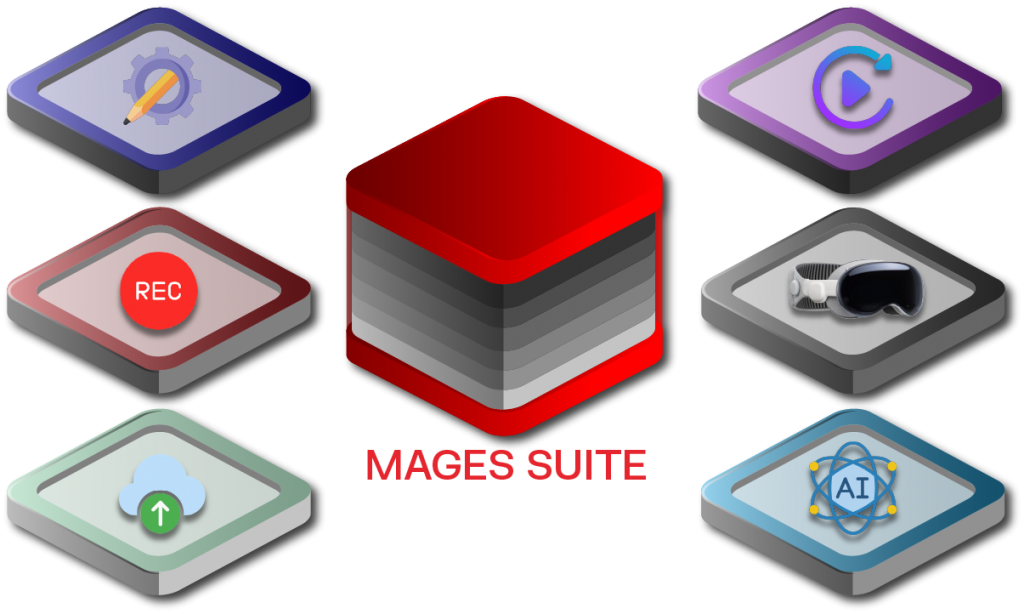
How we can do it
In 25 years of studying, researching and developing visual computing technologies, I ‘ve never seen a potential market size and impact similar to what spatial computing and spatial intelligence can bring to healthcare and education in general.
To achieve our vision, we are focusing on the following key areas:
-
-
Scalable Platform Development: Continuously enhancing the MAGES-SUITE platform to ensure it remains the most advanced and user-friendly tool for medical XR simulation creation.
-
Strategic Partnerships: Expanding our collaborations with leading medical institutions, med-tech companies, and educational bodies to drive adoption and scale our impact.
-
Innovative Product Offerings: Developing new features and applications, such as gen-AI text2XR training simulation authoring tools, AI-driven assessment tools, all delivered in the cloud via SaaS, in order to meet the evolving and vastly growing needs of the healthcare industry.
-
Global Expansion: Leveraging our strong market presence and proven success to enter new healthcare verticals and markets to reach more healthcare providers worldwide.
-
ORamaVR is leading the charge in transforming medical education through AI and XR technologies. Our innovative platform, proven track record, and strategic approach position us to make a lasting impact on global healthcare. By addressing the critical challenges in medical training and patient safety, we have the potential to fundamentally improve the way healthcare is delivered, thereby contributing to a healthier future for all.
.
In summary, here is the first phase of our Master Plan:
-
Build a low/no-code medical XR training SDK
-
Empower key medical institutions, med-device companies, and content creators to rapidly create medical XR training content by themselves using our SDK, using a SaaS B2B model. Allow these critical mass of MAGES SDK users to populate a carefully curated and scientifically validated dataset/marketplace of high-fidelity medical XR training simulations to facilitate mass adoption and revenue share
-
Use that revenue to evolve the low/no-code medical XR training SDK into an affordable gen-AI authoring/training/assessment platform: text2XR based on the above step 2 template dataset created by the no-code platform
-
First driven by human SMEs: a human expert types in a prompt with the complete medical procedure described in steps and the platform creates the XR scene, with interactions, 3D assets and training/assessment steps a trainee has to undergo in order to achieve competency, proficiency.
-
Then driven by AI (or robotic) SMEs, repeat the whole 3.a process above, for massive, accurate and rapid healthcare metaverse build-up. The aim is that as many surgeons (1M worldwide), doctors (10M worldwide), nurses (30M worldwide) first experience/plan any medical operation in simulated, computational medical XR, i.e. “never first time with the real patient”.
-
For now, let’s keep the above just between us.
Dr. George Papagiannakis

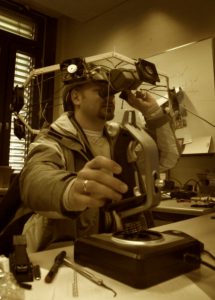
ORamaVR Team
Dr. George Papagiannakis, co-founder and CEO/CTO of ORamaVR is a computer scientist specialised in computer graphics systems, extended reality algorithms and geometric computational models. His academic credentials include serving as Professor of Computer Graphics at the Computer Science department of the University of Crete, Greece, as Affiliated Research Fellow at the Human Computer Interaction Laboratory of the Institute of Computer Science in the Foundation for Research and Technology Hellas, Heraklion, Greece, where he leads the CG Group and as visiting Prof of CS at the University of Geneva. He has more than 100 publications in the field, and he is a member of CGS (Board Member), IEEE, Eurographics, ACM and SIGGRAPH professional societies. In 2011 he was awarded a Marie-Curie Intra-European Fellowship for Career Development from the European Commission’s Research Executive Agency. He was conference chair of the Computer Graphics International 2016 Conference, in cooperation with CGS, ACM, ACM SIGGRAPH and Eurographics Associations. In 2017 he published a Springer-Nature book on Mixed Reality and Gamification which achieved more than 77.000 downloads so far. His pioneering research has attracted more than 2M EUR external funding at FORTH and more than 1M external R&D funding at ORamaVR.
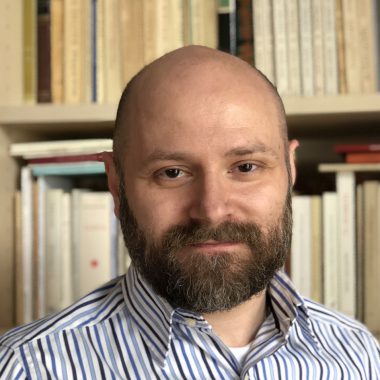
Professor Tsiridis is the Secretary General of the European Hip Society, Vice Chairman of Orthopaedic Surgery and Head of Adult Joint Reconstruction at PGH Orthopaedic Department of Aristotle University (AUTh) Medical School in Thessaloniki, Hellas. He is an Honorary Senior Lecturer at Imperial College London, UK; Fellow of the Royal (FRCS) and the American (FACS) College of Surgeons. He hold a PhD from the King’s College London UK; and an MD cum laude from the Athens University Medical School, Hellas. He completed his residency in London, fellowship trained in Boston Medical Centre, USA and Exeter, UK; sabbatical trained at Harvard Children’s Hospital and practiced as Consultant and Senior Lecturer in Leeds University Hospitals. He has published 170 papers (7,000 citations; h:39), several book chapters and he lectures regularly around the world. He is the editor of the “Adult Hip: Master Case Series & Techniques” by Springer 2018 and the president of the “MasterClass in Arthroplasty Conference” in Europe. He has received the “Rothman-Ranawat”, “Latta” and “Onassis” Fellowships and he is high volume arthroplasty surgeon. Entrepreneur in medicine has founded the C.O.RE (Center for Orthopaedic Research), the ART (Arthroplasty Registry Thessaloniki) and the Private Arthroplasty Center ICAROS.Ltd.
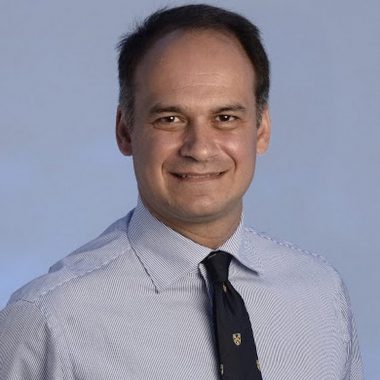
20+ years in AR, Computer Vision, Robotics and Innovation, Academia
Panos Trahanias is a Professor with the Department of Computer Science, University of Crete and ICS-FORTH. He received his Ph.D. in Computer Science from the National Technical University of Athens, Greece, in 1988. Since 1993 he is with the University of Crete and ICS-FORTH. Currently, he is the Director of Graduate Studies at the Department of Computer Science, University of Crete, and the Head of the Computational Vision & Robotics Laboratory at ICS-FORTH where he is engaged in and supervises research and R & D projects in brain-based modeling, human-robot interaction, robot navigation, remote-access robotic systems and augmented reality applications. He has published over 100 papers in technical journals and conference proceedings and has contributed in two books.
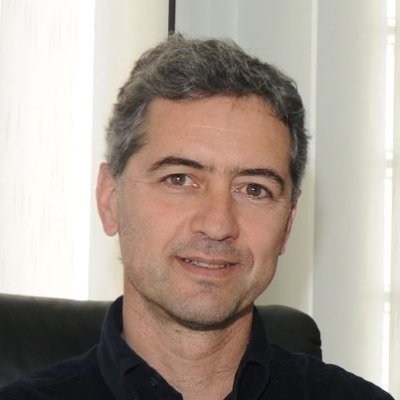
Nils Huebner (Chief Business Officer) is an international executive with 20+ years’ experience in sales & business development, corporate strategy, innovation & change management. Nils has lead businesses in the financial software industry and gained entrepreneurial experience and strong expertise in augmented and virtual reality technologies. Trained economist, ex-banker (Société Générale HQ), Nils has worked in leading positions and grown business for world renowned financial software companies such as SunGard and StatPro. Nils is also entrepreneur, CEO, advisor and investor to innovative tech startups (ARdictive, Virtual-Dive, Akwatyx, Whatizis, Entarena) with a strong expertise in the field of augmented and virtual reality technologies. Characterized by a collaborative, proactive and insightful leadership, showing the ability to design strategies, gain team & client support and transform strategies into tangible realities. Nils has joined ORamaVR to carry on its success to the next level of growth.
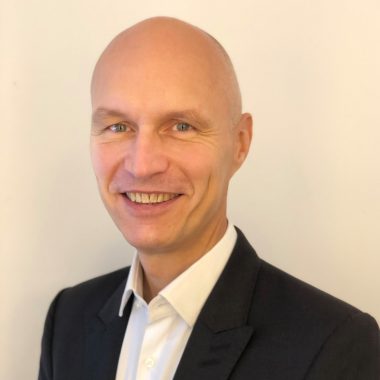
Amalia Kargopoulou, a skillful professional with a strong background in exports and administration, has joined the team as a Business Manager. In the work of ORamaVR, she channels her passion for human development. She holds a MA in Conflict, Security and Development (War Studies, King’s College London) and a BA in Political Science (Aristotle University of Thessaloniki).
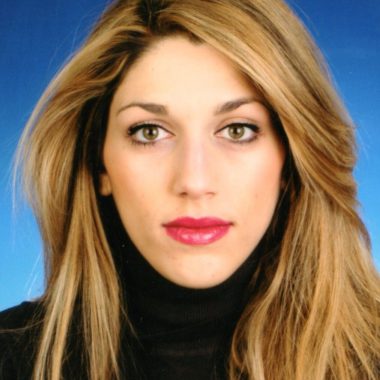
Eleni Grigoriou received her BSc degree in Computer Science from the Computer Science Department of the University of Crete, specializing in Computer Graphics. She recently completed her Master’s degree in Computer Science and Engineering at the University of Crete, with a specialization in Extended Reality (XR). Her Master’s thesis, “A Pattern-Driven Gamification Framework for Interaction and Visualization in Programmable Reality Environments,” focused on advancing user interaction and visualization techniques within XR systems.
Her academic work centers on Computer Graphics and Human–Computer Interaction, with her Bachelor’s thesis exploring Big Data interaction with a virtual human inside a Virtual Reality environment. Her research interests lie broadly in Computer Graphics, with particular emphasis on User Experience (UX) and User Interfaces (UI) in immersive XR environments.
Eleni began her professional journey at ORamaVR as a Content and UI Developer and later transitioned to a Developer role in Cloud Services. Her passion for Virtual Reality, Computer Graphics, and user-centered design, combined with her strong commitment to her work, led her to roles of increasing responsibility, including Product Manager and UI/UX Lead. With more than five years of experience in XR product development, she now serves as VP of Product Management at ORamaVR, where she oversees product strategy, user experience vision, and cross-functional coordination across XR product development.
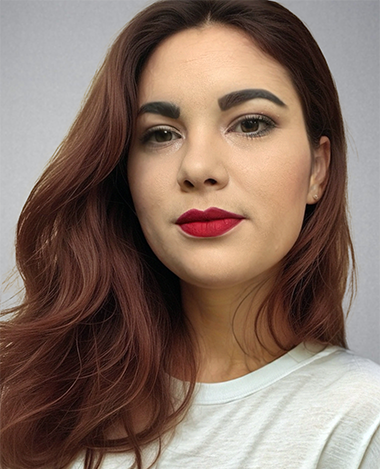
Nikos Lydatakis graduated from Computer Science department, University of Crete where he obtained both this BSc and MSc on Computer Graphics. He started as a research fellow at the Institute of Computer Science of the Foundation for Research and Technology – Hellas, on Computational Vision and Robotics Laboratory. He works in the fields of Virtual Reality from 2015. He is currently working at ORamaVR as Head of Product.
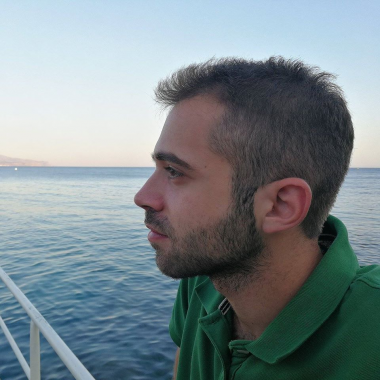
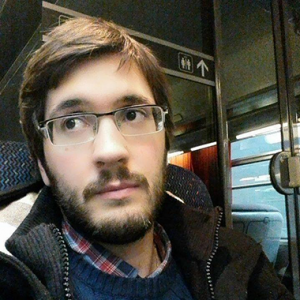
Michael Kentros is a software engineer with experience in VR and ML applications. He worked at the Computer Vision and Robotics Laboratory at FORTH, as an undergraduate and graduate researcher for 3 years. His main focus lies upon computer graphics with a key interest in developing applications for improving the user’s skills through analysis and assessment. He earned his bachelor degree in Computer Science from the same University of Crete, focusing on Serious VR Games that improve the user’s wellness. He also holds a M.Sc in Computer Science from the University of Crete, where he researched methods for VR skill assessment and recording, utilising Machine Learning. Currently, he is PhD candidate in the same university, researching procedures to improve the way users’ performance is assessed in VR training scenarios with ML, as well as working in ORamaVR as a Lead SDK developer.
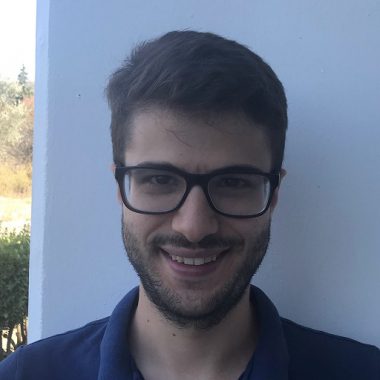
Dr. Antonis I. Protopsaltis is a dedicated Computer Scientist specializing in Computer Graphics and Computer-Aided Design (CAD). He earned his Ph.D. in Computer Science from the University of Ioannina-Greece in 2010, complemented by an M.Sc. (Hons) in Computer Science (Software Engineering) and a B.Sc. (Hons) in Computer Science from Concordia University in Montreal-Canada in 1996 and 1994, respectively. Currently serving as a Special Teaching Fellow of Computer Graphics within the Department of Electrical and Computer Engineering at the University of Western Macedonia, Greece.
His doctoral research focused on Geometric Modeling Methods for Reverse Engineering of Scanned Objects, leveraging Geometric Constraints of Cross-Sections. Today, Dr. Protopsaltis is deeply involved in the exploration of Extended Reality methods. His research interests span Computer Graphics, Virtual/Augmented/Extended Reality (VR/AR/XR), Scientific Visualization, Geometric Modeling of 3D objects, Reverse Engineering of 3D objects, and Computer-Aided Design – CAD. Dr. Protopsaltis has actively contributed to numerous research proposals and assumed pivotal roles as the main Researcher in various European or Greek funded research projects in these domains.
Dedicating his expertise to advancing the field, Dr. Protopsaltis serves as a reviewer for high-impact international scientific journals. With a diverse professional background, he has previously worked as a consultant and lead graphics programmer in the industrial sector.
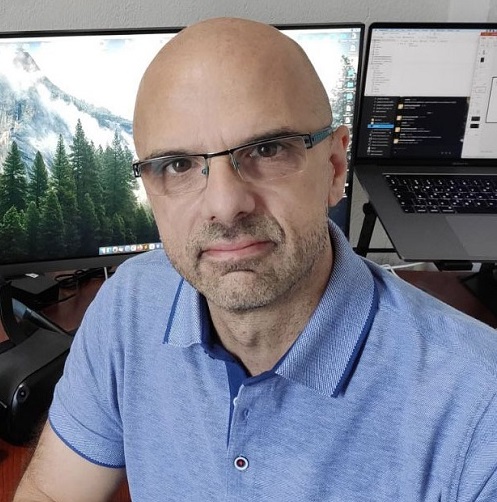
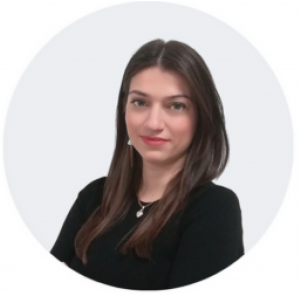
Achilles Apostolou grew up in Athens, Greece. He earned his BSc in Computer Science from the University of Crete specializing in Computer Graphics and his MSc in Medialogy from Aalborg University Copenhagen, focusing on Real-Time Computer Graphics and Virtual Production. Having always been interested in 3D Graphics and Digital Arts, he spends most of his time designing 3D Content for Virtual Reality as well as researching advanced Media Technologies.Achilles joined ORamaVR in late 2019, initially working as a 3D Designer and VR Content Developer. In his current role as 3D Technical Director, he is responsible for supervising the 3D Design Team as well as working closely with both the Development and Management Teams.
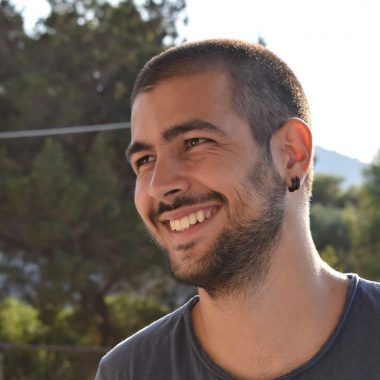
Michael Dodis is a computer scientist from the Computer Science Department, University of Crete, Greece. He first came into contact with programming through Unity, then went on doing lower-level projects with computer graphics. He is currently working on the Networking side of interactive VR applications.
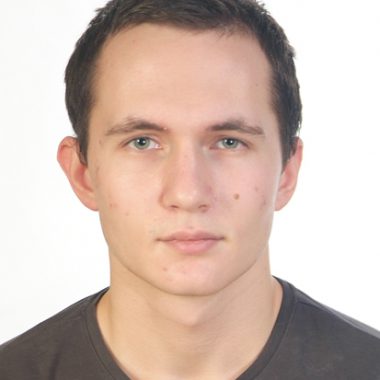
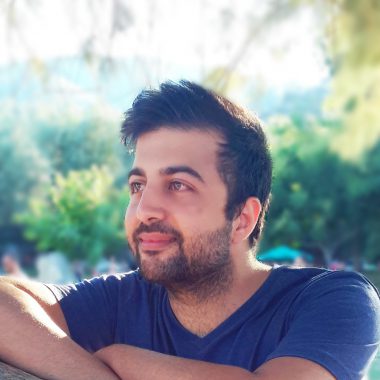
Dr. Maria Pateraki is a researcher in the converging areas of Computer Vision and Photogrammetry with an established track record of developing vision systems for real-world problems. She has R&D experience in industry, research institutes and academia with participation in more than 25 EU, international and national funded projects and her research focus is with respect to 2D/3D object extraction and tracking, 3D pose estimation, 3D reconstruction and image matching. She obtained her Ph.D in Photogrammetry from the Swiss Federal Institute of Technology in Zurich (ETHZ) in Switzerland in 2005. Since 2008 is a Associate Researcher at the Computational Vision and Robotics Lab in the Institute of Computer Science of the Foundation for Research and Technology-Hellas in Greece. Prior to this post she has been a research associate at the Geomatics Department of the University of Melbourne and the Cooperative Research Center for Spatial Information (CRC-SI) in Melbourne, Australia and a postdoctoral fellow at the Aristotle University of Thessaloniki, Greece. She has also been a visiting assistant professor at the Computer Science Department of the University of Crete, Greece (2012-2014) and a visiting lecturer and postdoctoral fellow at the Aristotle University of Thesaloniki (2006-2007).
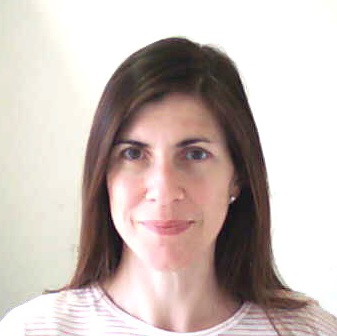
Dr. Efstathios Kenanidis is an esteemed orthopedic surgeon with a distinguished academic and professional background. He graduated with honors from the Medical School of the Aristotle University of Thessaloniki in 2000 and completed his Orthopedic specialty at Papageorgiou General Hospital in 2013. Dr. Kenanidis holds a Master’s in Medical Research Methodology and a Ph.D. from the same university. He has extensive clinical training in hip and knee reconstructive surgery and arthroscopy, including fellowships in Geneva and London.
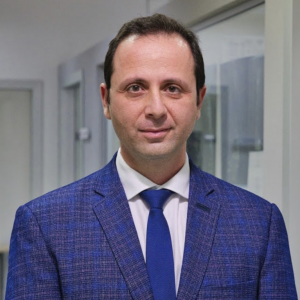
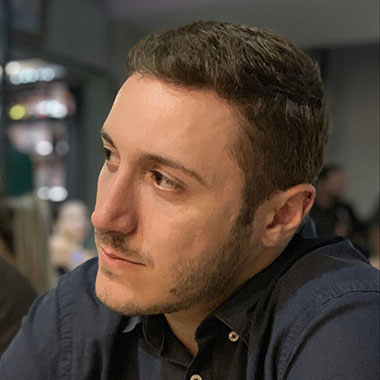
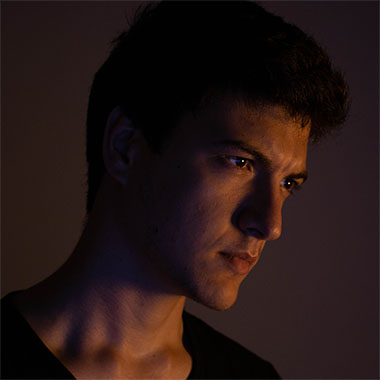

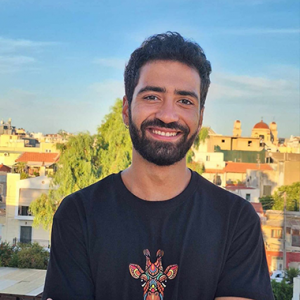
ORamaVR Advisory Board
Hospital for Joint Diseases Medical Director International Patient Services NYU Langone Medical Center, USA
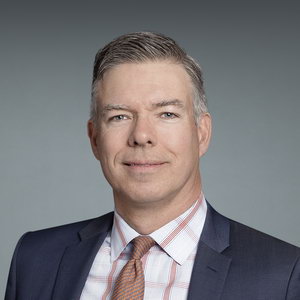
Professor of Electrical Engineering and Computer Science, Stanford University, Multi-scale Architecture & Systems team, Stanford, USA
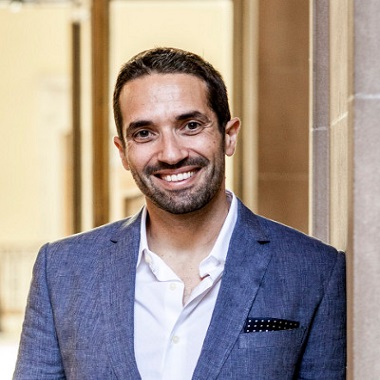
ORamaVR products support UN
sustainable development goals:
SDG3: Good health and well-being
SDG4: Quality education

